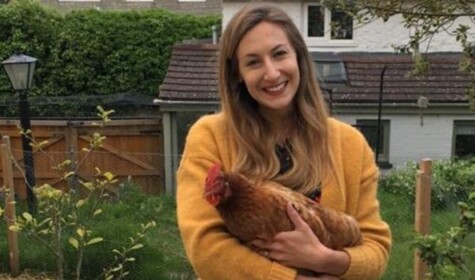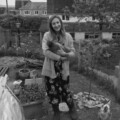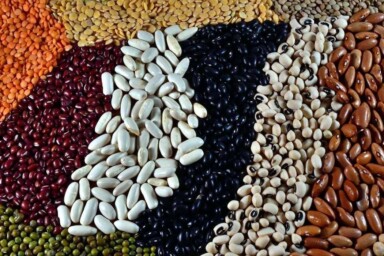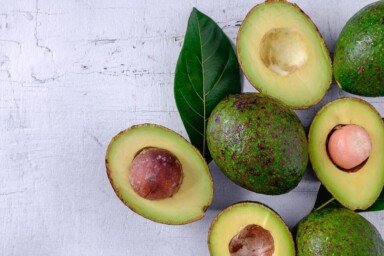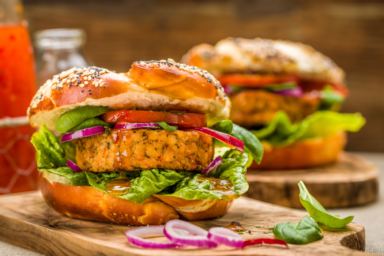In 2009, the writer Chimamanda Ngozi Adichie gave a TED Talk titled The Dangers of a Single Story; with over 20 million views, it is one of the most popular TED Talks of all time. Adichie’s speech was about the problem, indeed danger, of reducing people, cultures and situations into a single narrative. This narrow view gives us an incomplete picture of the truth, leading us to make incorrect assumptions and form damaging prejudices. Pertinent to Adichie as a Nigerian is the single story of Africa as nothing more than a beautiful but poverty-stricken continent; Adichie describes the impact of this perception when meeting her American roommate for the first time, ‘…in this single story there was no possibility of Africans being similar to her in any way. No possibility of feelings more complex than pity. No possibility of a connection as human equals.’
You may be wondering what this has to do with sustainable food? We are living through a time when unprecedented attention is being given to the topic of sustainability, and rightly so. We face a threat to our very existence in the form of the climate and biodiversity crises. However, when it comes to sustainable diets, the media has tended to boil down this focus into a two-way argument, between an animal-protein versus plant-based diet. The story tends to read ‘eating meat is bad, being vegan is good’; and sometimes the ‘meat’ in this argument refers specifically to red meat. In my head, Adichie rings an alarm bell at the danger of reducing a hugely complex situation into this single narrative.
This single story can lead to the problematic assumption that so long as you’re eating a plant-based diet, you’re saving the planet, and can therefore eat (and do) whatever you want. This, of course, isn’t true – there’s no point in being vegan for environmental reasons if you are devouring daily avocados with a huge carbon footprint and associated deforestation, or knocking back almond ‘milk’ that fuels a monoculture, destroying biodiversity and killing billions of bees. Nor should you whizz around in a plane all you want because you have been told that ‘a vegan diet is probably the single biggest way to reduce your impact on planet Earth’.
Livestock farmers and meat-eaters become the villains of the story. But this single narrative fails to recognise conscientious farmers and omnivorous consumers who are part of the solution rather than the problem; for example, agroecological farmers and the consumers who support them, where grazing livestock ‘enables the maintenance and redeployment of natural grasslands, maximising the production of spontaneous legumes and therefore soil fertility management, and contributes to the restoration of biodiversity, climate mitigation and high-quality animal production’. Several excellent Sustainable Food Trust (SFT) blogs have explained the benefits of livestock farming, and the need to look at the bigger picture in this over-simplified argument.
I’d like to take this opportunity to introduce myself. My name is Lizzie, I’m an animal welfare research scientist and the newest member of the SFT team. And because ‘the particulars of one’s dietary habits seem now to need declaring – like a criminal record or a grant from Monsanto’, I will state that I am a long-term vegetarian, and more recently, my diet has become more vegan. I became vegetarian when I was eight years old because eating animals, the things I love most in the world, felt wrong to me. More recently I turned away from dairy because I feel uncomfortable about taking young away from their mothers, as well as reducing sentient creatures to low-value byproducts of a system (I speak of male dairy calves). For a similar reason I seldom eat eggs (where male chicks are also an unwanted byproduct), apart from those from my own rescue chickens. It’s not a diet I advocate for the population as a whole, just one that feels right for me as an individual, based on my personal ethics.
As the flip side to the single story of ‘meat = bad, plant-based = good’ and the understandable backlash it has created, I am starting to feel vilified as being part of the problem, as well as demonised by those who equate vegans with vacuous, trend-chasing millennials or animal rights extremists (I have spoken to many people who use the term vegan synonymously with such activists).
Like farmers and meat-eaters, vegans are being unfairly tarred with the same brush. The single story is leading to damaging prejudices that are driving a dangerous divide between us. Maybe this type of thinking is inevitable; maybe it is part of our tribal nature, our ‘us versus them‘ mentality. But I’d like to think we can respect our differences and come together when faced with a threat to our very existence.
The SFT is a shining beacon in avoiding such polarisation, respecting differences and embracing the nuance of the incredibly complex topic of sustainable food. I quote Patrick Holden, founding director of the SFT and a dairy farmer, directly in saying ‘I have total respect for anyone who chooses for ethical or dietary reasons to avoid involvement with dairy farming or the consumption of dairy products.‘ In the spirit of bringing all sides of the debate together, Patrick invited George Monbiot (who advocates a vegan diet for all and further still believes that all livestock farming should be obliterated) to a lively but respectful and inspiring discussion at the most recent Oxford Real Farming Conference. Patrick ended the session by imploring us to work together and stressing that we need each other in this fight for the planet. I couldn’t agree with him more.
I don’t pretend to have all the answers (I don’t believe any of us do) but I’m certainly not blindly following trends and hashtags. I update my consumer behaviour according to the questions I ask and the things I learn – knowledge is power. Nor am I advocating that we end livestock farming – far from it; I believe in the importance of livestock in a sustainable food system, and no one can argue that I am supporting meat or dairy production because my livelihood depends on it, or because I love eating it. I do take an evidence-based view that we need to reduce our meat and dairy consumption in the Western world, and I am happy to play a small part in the reduction of this demand. What I do strongly advocate for is that we all be more thoughtful in what we’re eating – we must become thoughtful eaters (perhaps a “thoughtfulvore” if you’d like a label). If you don’t want to eat animal products, that’s OK, so long as you think about the plant-based food you are eating – how it was produced and how it got to you. If you want to eat meat, this is also fine, only if you think about where it came from, and how the animals were raised and killed.
There are of course, economic barriers to thoughtful eating; for example, unhealthy foods are three times cheaper than healthy ones, and the poorest 10% of UK households would need to spend three-quarters of their disposable income in order to eat a healthy diet. These are symptoms of a broken food system that must be remedied if we are to achieve a sustainable future for all. In the meantime, for those of us who can already afford to, we must be more thoughtful in our consumer choices.
So, let us not be divided by a single story. In the words of author and activist Helen Keller, ‘Alone we can do so little; together we can do so much.’ Faced with the climate and ecological breakdown of our own causing, never have we had so much to do, and never have we needed each other more. Let us unite, as thoughtful eaters. Let us work together, and save our planet.
